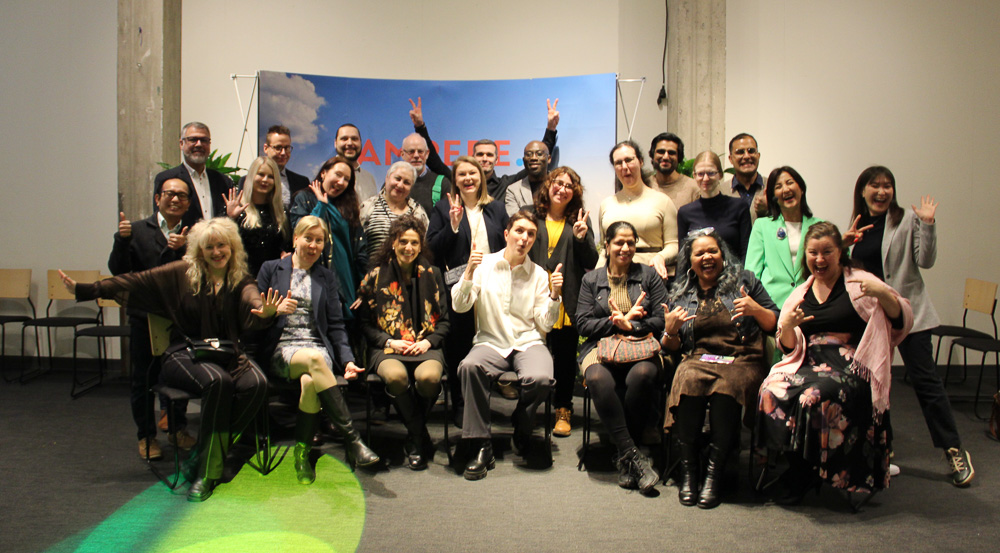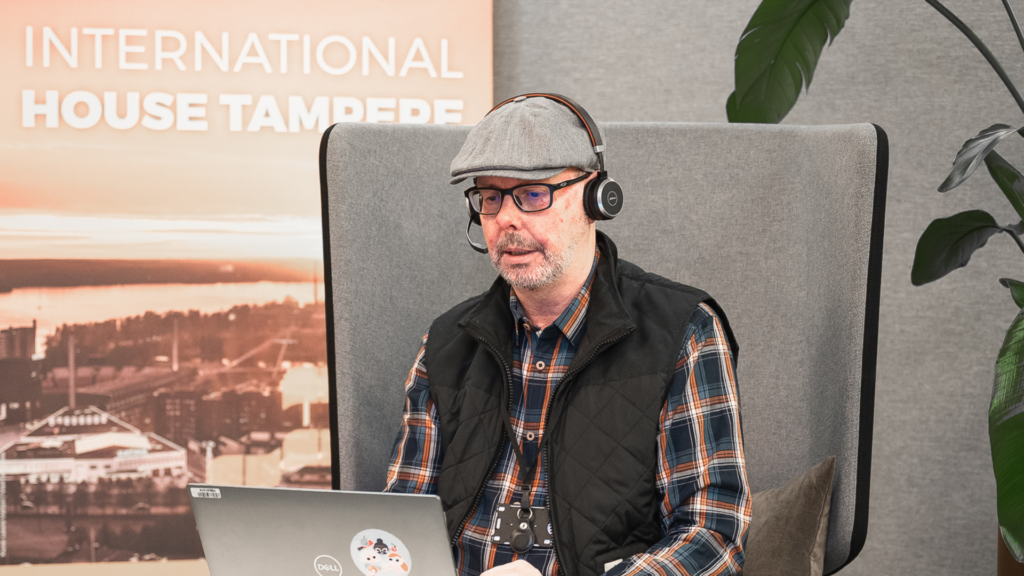International Talents Are the Fuel for Growth

We had the pleasure of sitting down with Miika Mäkitalo – the CEO at HappyOrNot and previously the CEO at M-Files Corporation – to talk about the role of international talents in a company’s growth and prosperity.
HappyOrNot, a feedback insights company that makes terminals for measuring customer satisfaction, has become an international success story rather fast. Born in Tampere in 2009, the company now has customers in over 135 countries globally. And this growth is largely influenced by the international teams that continue to fuel the business with new ideas, perspectives, initiatives, and local know-how. As of today, 27% of the company’s employees in Finland have an international background.
For already 18 months, Miika Mäkitalo has been building yet another international success story alongside the amazing talents at HappyOrNot. Even though the pandemic has brought its own challenges to the industry in these past two years, Miika shares the company’s new plans and exciting projections for the year 2022, a big part of which is focused on an even stronger international presence and growth.
“International talents are the fuel for growth. If the main goal is flat growth focused on the Finnish market only, then business-wise it is ok to prioritize the Finnish workforce. However, if you’re aiming to expand and have the ambition to build a global success story, it is a requirement to have international talents onboard”, said Miika at the start of our conversation.
“The Most Successful Companies Have Experimentation Culture at the Core of Their Business”
Miika strongly emphasized the importance of experimentation culture in relation to enriching the team with more diverse talents and expertise.
He expanded the thought further: “The most successful companies are testing a lot of ideas and scaling the best of them. Hence it’s essential for the company’s service to address various market needs, challenges, audience types etc. Valuable insights can be gained through working with professionals from various backgrounds. It should be evident for the organization that having all employees graduate from the same university, the same faculty, and in the same year will not contribute to building a successful global business.”
Finland is a small country. Without an international workforce onboard, it would be nearly impossible to position the product across various markets, to deeply understand customer needs across the globe, to have diverse ideas on the table, and different eyes on the business development. A diverse team is an important prerequisite for getting ideas on how the product should be built, seen, targeted, and approached.
“Today, International Hiring Is Not a Good-to-Have but a Must”
Miika shared that due to the nature of HappyOrNot and the internal culture built over the years, “being international and diverse” has been a part of the company’s DNA from early on. Which, in turn, enables hiring the best talent on the market and scaling rapidly.
He acknowledged that the situation may look very different for organizations that have not yet stepped into the international recruitment arena. Fear of the unknown, new processes, change of company language, adaptation of employees, and other reasons may seem like too many barriers as opposed to benefits when it comes to hiring the first international talent.
Miika encourages companies to start with the core strategy, think long-term, and ask themselves: “where do you want to be 5 years from now? If the goal is to be good in Ylöjärvi, then international hiring may not be on your immediate radar. But if the goal is to expand internationally, the faster you diversify your team, the faster you get there.”
At the end of the day, hiring the right talent to the team ties in strongly with the overall business objectives and strategy. Hence, looking beyond the short-term goals is key to deeply evaluating the hiring needs.
The Cost of Not Hiring an International Talent in the Long Run is Higher than the Perceived Obstacles
It is true, indeed, that hiring the first international talent to the team may bring the need for certain adjustments. Companies should be conscious of where they are in their journey – if employees are not happy with the upcoming change, clear benefits need to be elaborated. Change doesn’t happen overnight, but it’s about setting the right expectations with the whole company, addressing possible concerns with employees, and remembering that everything is solvable, “figureoutable”.
Looking at the other side of the table, having a diverse and dynamic environment to work in is becoming more important for many Finns too. Plus, as far as career growth goes, having worked in or having led an international team is a huge asset for one’s resume.
It is seen that the pandemic has also accelerated the change in the industry (even amongst the most homogenic companies), where hybrid work has enabled more borderless communications and fostered internationalization.
For HappyOrNot, despite the challenges the pandemic threw at the industry, this year is projected to be a year of good traction on the market, international growth, and new market explorations. Miika Mäkitalo ended our conversation buzzing with excitement: “I am so happy to see our teams getting back together and feeling the positive vibes in the air. This is going to be a good year!”





